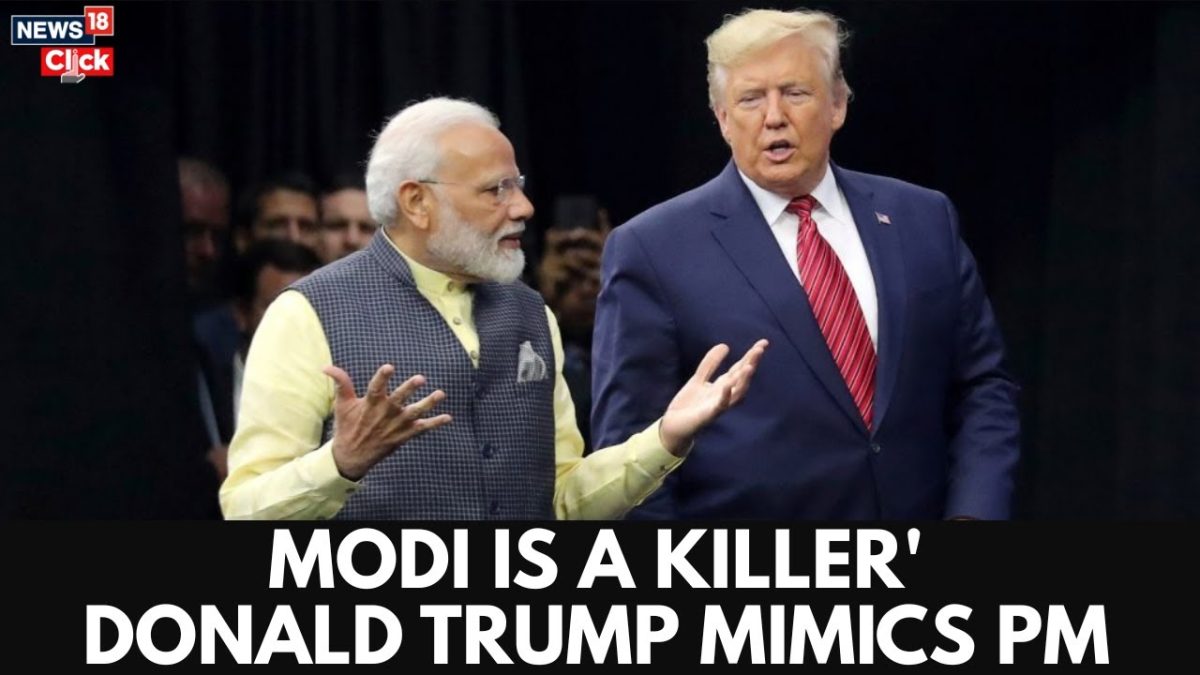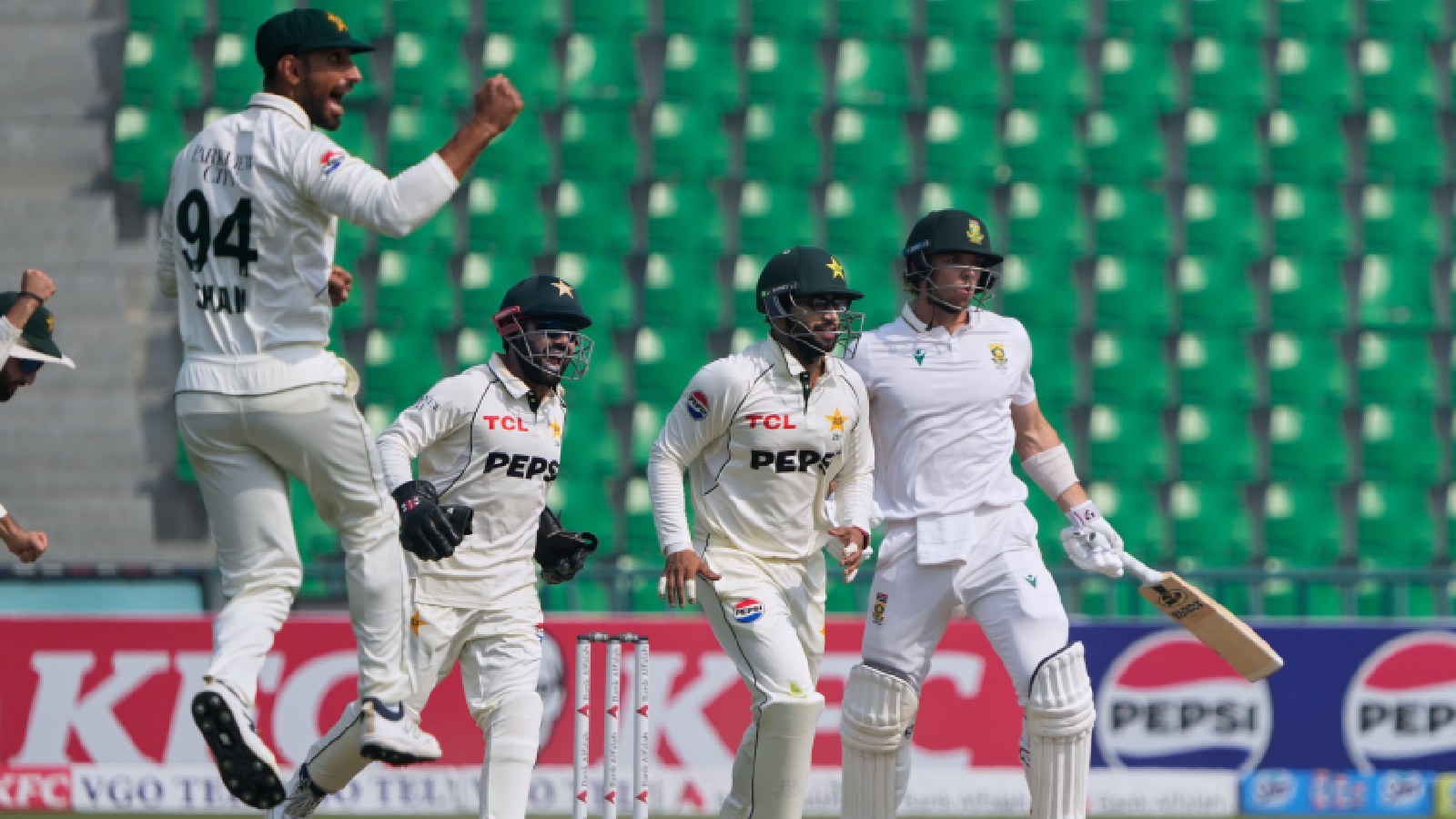ARTICLE AD BOX
Last Updated:October 29, 2025, 01:04 IST
Trump, who styles himself as a 'president of peace', appears to be inching toward confrontation with a country that has already offered substantial concessions to Washington

The United States has not detailed evidence of Maduro’s personal involvement in the drug trade, and the UN Security Council has ignored Venezuela’s protests over what it calls American aggression. Image/Reuters
From US warships prowling the Caribbean to nuclear-capable bombers circling overhead, Washington’s military posture towards Venezuela is growing harder to ignore. What began as rhetoric from Donald Trump has taken on the tone of a calculated escalation—one that blurs the line between counter-narcotics operations and regime-change ambitions.
The US president, never one to mince words, has repeatedly accused Venezuelan leader Nicolás Maduro of running an organised crime syndicate. Yet, as with many of Trump’s most forceful claims, no public evidence has been presented. Asked recently whether the CIA has authority to assassinate Maduro, Trump declined to answer—a silence that has only deepened suspicions about covert American involvement. For his part, Maduro has accused Washington of imperial overreach, warning that the United States seeks to topple his government under the pretext of a drug war.
Tensions have risen sharply following a series of US military manoeuvres in the region. The USS Gravely, a guided-missile destroyer, has docked at Port of Spain in Trinidad and Tobago—a mere 25 miles from Venezuelan shores. Caracas has condemned the move as a deliberate provocation by both Washington and Port of Spain. Meanwhile, the world’s largest warship, the USS Gerald R Ford aircraft carrier, is steaming closer to the Venezuelan coast. Satellite imagery and flight-tracking data reveal an increased American air presence: nuclear-capable B-52 bombers, stealth F-35 jets, and maritime surveillance aircraft such as B-1 bombers and P-8 Poseidons. Even the distinctive MH-6M Little Bird helicopters—“Killer Eggs" flown by US special forces—have been spotted operating off the Caribbean coastline.
Officially, Washington insists its strikes and patrols are aimed at “narco-terrorists". Since September, the Pentagon has acknowledged seven operations that killed 32 people aboard vessels allegedly carrying narcotics near Venezuelan waters. But the scale of the deployment far exceeds what would normally be required for maritime interdiction. Moreover, US data show that most cocaine entering the United States—nearly 84 per cent, according to the 2025 DEA report—originates in Colombia, not Venezuela. The Caribbean, where the first raids occurred, is a minor trafficking corridor compared with the Pacific routes. Analysts argue that the military buildup has less to do with drug interdiction than with political signalling.
The contradiction is glaring. Trump, who styles himself as a “president of peace", appears to be inching toward confrontation with a country that has already offered substantial concessions to Washington. Maduro’s government, eager to ease sanctions, has allowed Chevron to resume operations and granted US companies a greater stake in Venezuela’s oil sector. In response, the Biden administration (and later Trump’s reinstated team) loosened select oil restrictions—a transactional thaw that briefly hinted at pragmatism. Yet, hawkish figures within Trump’s circle, notably Senator Marco Rubio, continue to push for a harder line, arguing that only maximum pressure can end Maduro’s rule.
That posture now has tangible military weight. Warships and bombers cannot linger in the Caribbean indefinitely, raising questions about Trump’s ultimate objective. Is the show of force designed merely to rattle Caracas, or is Washington preparing the ground for a more decisive strike?
For now, the signals remain mixed. The United States has not detailed evidence of Maduro’s personal involvement in the drug trade, and the UN Security Council has ignored Venezuela’s protests over what it calls American aggression. Yet the convergence of rhetoric, reconnaissance flights, and naval deployments suggests a shift from symbolic hostility to strategic pressure.
Whether this escalation culminates in open conflict or remains a coercive display will depend on how far Trump is willing to go—and whether the shadow of oil, not narcotics, is what truly fuels America’s latest confrontation in its own hemisphere.
First Published:
October 29, 2025, 01:03 IST
News world Narcos Or Narratives? What’s Really Behind Trump’s Venezuela Escalation
Disclaimer: Comments reflect users’ views, not News18’s. Please keep discussions respectful and constructive. Abusive, defamatory, or illegal comments will be removed. News18 may disable any comment at its discretion. By posting, you agree to our Terms of Use and Privacy Policy.
Read More

 10 hours ago
4
10 hours ago
4









 English (US) ·
English (US) ·